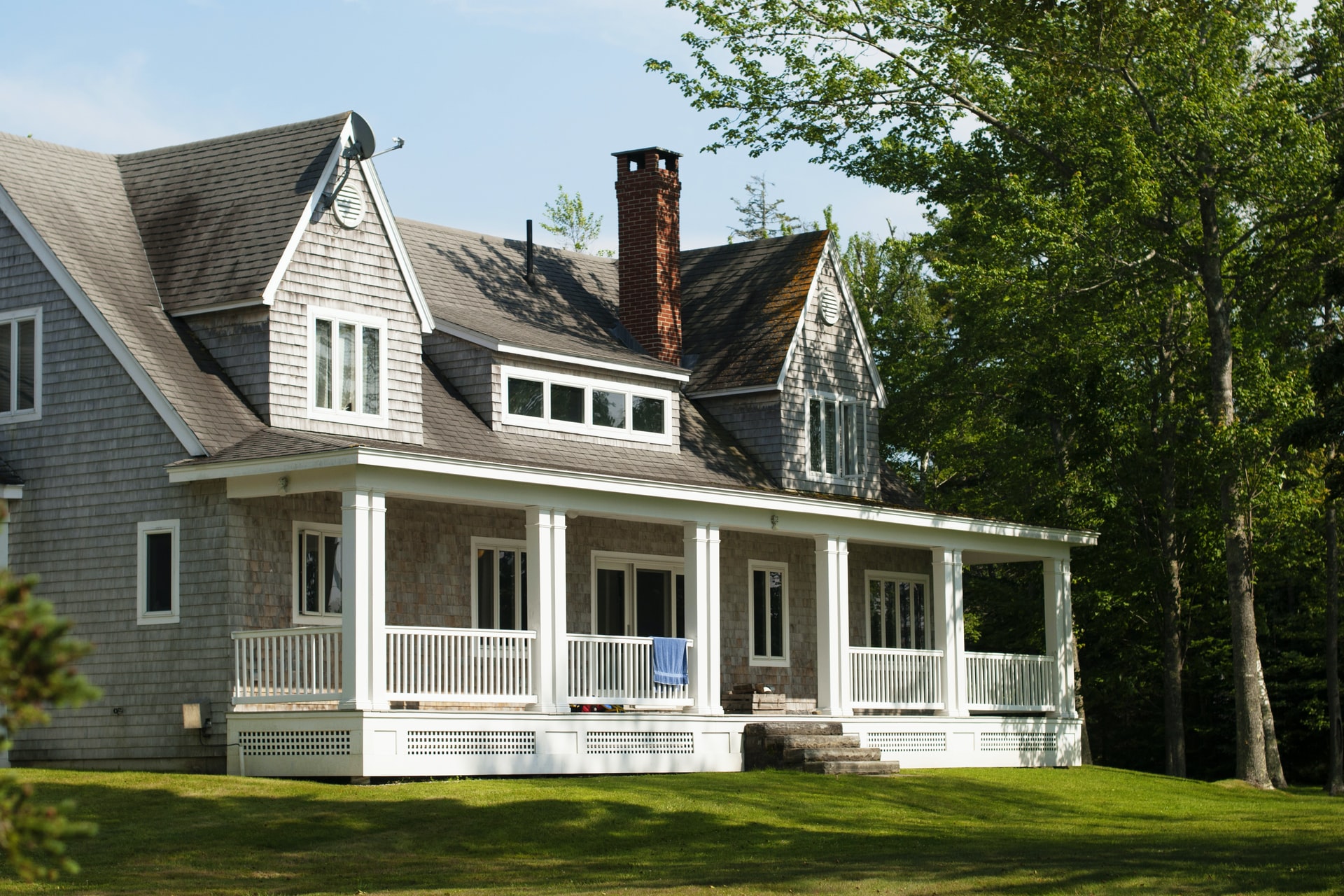Monthly rental costs have risen in the US from $1,054 in 2017 to $1,322 in 2021. Many young people are not purchasing homes at the age that would have been normal for older generations, leading to a booming rental market.
The main reasons that non-homeowners don’t currently own are not having enough money saved for a down payment (38 percent) and low credit scores (32 percent), significantly attributed to the increased cost of living. For example, in California, you’d need to earn at least $39 per hour to afford to rent a two-bedroom apartment. While this is the most expensive state to rent in, even in the least costly state, Arkansas, you’d need to make $14.60 an hour to rent a two-bedroom. Given that the minimum wage in most states is $7.30 an hour, you can see the problem. Millennials and Gen Z are having trouble paying rent as intermediate and junior members of the workforce, never mind saving for a down payment to buy a home. Their solution is to rent long-term, giving you, a potential landlord, a large pool of renters to draw from.
Getting started

Is being a landlord right for you?
Being a landlord, owning and being responsible for property you lease to someone who lives there and makes it their home, is a big undertaking.
It’s a great way to build your wealth and get ahead — having someone else pay the mortgage on your home sounds like the dream! It does come with some responsibilities and potential pitfalls, however. You can largely avoid these by screening tenants properly and diligent maintenance, but you always need to be prepared for the possibility of a disagreement with your tenants leading to a legal fight, damage to your property, or difficulty evicting bad tenants.
Tips to find and screen tenants
The best case for most landlords is renting to people you know personally and are confident will be responsible tenants or getting referrals from trusted sources. Other common methods are posting your rental unit online and having applications sent to you.
The best tip for screening potential tenants is to be thorough and take your time. It can be an arduous process, but your stress levels will thank you for taking the time to get a responsible and stable tenant in – just ask someone who has had a bad experience how much this step is worth!
Here are more consistent tips:
- Develop written qualification criteria & document them
- Verify income sources
- Contact two previous landlords
- Run a background check on each adult applicant
- Don’t offer leases without a completed & signed rental application.
Understanding your rights
There are more rules than you might think around property rental – spend the time and effort getting to know them for your state. It’s vital to be informed so that you don’t end up accidentally in the wrong, and you know what your rights are.
How to be a good landlord
The essentials of being a good landlord are simple. Keep things in good order, don’t pester your tenants, and be responsive in your communication.
Get landlord insurance
This is very, very important. Like homeowners insurance, you need landlord insurance to cover any damage to your property or lost income. Your home insurance will not cover this!
Landlord insurance covers things like damage caused by tenants, loss of income from missed rental payments or time that the unit is uninhabitable, and liability protection.
Things to consider before buying an investment property

Location is key
As they say, location, location, location! The best place to purchase rental property is a moving target based on industry, population growth and housing demand. In 2021, the hottest real estate rental markets in the US were:
Raliegh/ Durham, North Carolina
- Austin, Texas
- Las Vegas, Nevada
- Dallas, Texas
- Charlotte, North Carolina
Rental Expenses To Cover As A Landlord
Some expenses will be the tenants to cover on their own, but certain things might benefit you to include in the rental cost. Consider these when setting the price for your rental property so that you don’t end up with less profit than you’re expecting:
- Property taxes
- Home insurance
- HOA fees
- Repairs and maintenance
- Property management
Top 10 Tax Deductions For Landlords
Yes, we know taxes are tedious and arduous, but we have some deductions to help you max out your return and get some of that hard-earned money back in your bank account.
- Mortgage interest – you can deduct the interest you’ve paid on your mortgage loan throughout the tax year.
- Building depreciation – buildings don’t last forever; they are subject to decay, aging, and deterioration throughout the years, and you can claim that amount.
- Repairs and improvements
- Property taxes
- Travel expenses
- Professional services (lawyers, accountants, etc.)
- Losses from weather-related damage or theft
- Lawn care
- Utilities
How to pick rentals that allow for cash flow
Choosing a wise rental property is different from choosing a home you want to live in as your primary residence. Ideally, you’ll be able to find a duplex or other multi-unit space that you can rent to two or more households. That way, you’re paying the mortgage, property tax, and other associated expenses for one property and making twice or more the income from it. Of course, this almost means that you’ll be paying more in taxes, but overall, more units mean more profit.
How to project your return on investment
Make a big, long, comprehensive list of everything you can think of over the year that you’ll need to spend on your rental property, including everything from lawn maintenance and snow removal to home insurance and property taxes. Add all that together, divide it by 12, and subtract it from the amount you’re planning to charge for rent, and voila! That’s your projected return on investment each month.
Have a plan for when you don’t have a tenant
Even if you’re planning on buying a home in a competitive rental market, stuff happens, and you might have a month where you don’t have a tenant. Or, worst case, there’s damage from a burst pipe or a broken dishwasher, and you need to make repairs.
Maintenance is stressful in itself, but it will be much easier to handle if you’re responsible and put away money in an account dedicated to emergencies. Best case, stash away enough for one major repair and three months’ rent so you can breathe easy if something happens.
Hire a professional home inspector
A home inspector is a professional that gives an unbiased expert opinion of the condition of your potential rental home before you buy. While hiring a local inspector is a cost you have to take on, it’s well worth it to pay $250 for an inspection that saves you from buying a home that needs $30k of repairs to the foundation.
Mold inspection
According to the EPA, the ideal humidity for a home is 30-50%, and anything above 60% creates an environment where mold is likely to grow.
Getting the home you’re thinking of buying inspected for mold is a great way to safeguard your money by ensuring you don’t need costly remediation.
Pest inspection
The last thing you want is to take possession of your new rental property just to find out that it has a problem with cockroaches, earwigs, mice, rats, fleas, or silverfish. A pest inspection is relatively inexpensive and can save you future headaches and give you a leg up in negotiations.
Getting your property ready

Perform maintenance checks
Maintenance checks are your best friend when it comes to being prepared for a new tenant and making sure your rental property is ready.
Preventative maintenance
Preventative maintenance is the best kind. When you fix something before it breaks, you’re saving yourself the future hassle of a call from your tenants that the roof leaks, the furnace is broken, or the freezer isn’t working right. You need to make sure you’re doing it correctly, regularly, and on time. It’s easier if you create a maintenance checklist for winter and for the summer.
Drawing up a lease
Making a lease is all about defining expectations for both parties and laying out the process for what happens in any scenario.
Most states have a template that you can work from to start, but you are free to add to this, make your own, or have a lawyer make an agreement just for your property. More detail is better, in this case. In a contract, ambiguity benefits the party that did not draw up the contract, meaning that if something is unclear in your agreement and there is an issue that goes to court, the law will be on your tenants’ side.
Marketing your property
Marketing is everything! The way you write online about your property and describe it, the colors and decor you choose, and all of those associated decisions help bring in the type of tenant you want. If you’re looking for inspiration, check out popular rental properties online and see how they use social media for marketing their properties.
Real estate investment basics

What is real estate investing?
Simply put, buying a property that you then rent out is real estate investing. Investing in the property to improve it and increase its value is part of that investment, as is the management of the property.
If you are planning to raise money through a limited partnership in order to invest in real estate property and then sell it off after a set period of time, get hold of the modern real estate syndication software. This software is built by experienced entrepreneurs, who have raised millions of dollars for their own ventures; it will help you streamline most of the administrative and financial requirements of raising money through a limited partnership. In short, if you run your own small real estate syndication, this modern software can automate and improve the process of finding investors and managing them post-investment by providing an online platform where you can do just about everything from funding an offer, collect investor documents, send e-statements and ACH transfers, as well as conduct due diligence.
Common mistakes to avoid
Buying at market value
This might sound like a reasonable plan, but more often than not, the real estate in a particular market will sell above or below market value, not bang on. If you’re buying at market value in a place that’s a buyer’s market, you might be overpaying. Likewise, if you’re bidding at market value in a hot location selling over the listing prices, you likely won’t get the home you’re bidding on.
Investing too much of your personal funds
This one is tricky because owning a single rental unit isn’t going to get you investment from a venture capital firm, but that money has to come from somewhere, right? Yes — but it should be coming from the profits of the property itself, not out of your pocket.
Not having multiple exit strategies
This is a new venture, and it might not work for you. You may find that it’s more work than you thought, or you’re just not enjoying the extra worry and responsibility. Whatever the case, make sure you know the steps to sell and get out of the rental game.
Not having a strong network of professionals to rely on
Creating a roster of professionals from handypersons to lawyers and accountants that you can rely on is amazingly helpful in taking the stress out of things and helping your rental business run smoothly.
Jumping right in without proper planning
Researching the area, home costs, crime rates, potential infrastructure planning or development nearby, etc., are all things that you should know before you buy an investment property. That information is all publicly available; you’ll just have to spend the time to dig around and find it.
Overspending on renovations
While it’s great that you want your rental home to look beautiful and that having a lovely home will attract quality renters, there is a point at which the return on that plateaus, and you’ll be losing money. Try only to do renovations with profit from your rental, and know how long it will take you to recoup those savings.

The prospect of buying a rental home is exciting, and seeing all that effort pay off as your bank account and credit score both grow is incredibly satisfying. And who knows — maybe one rental property will help you save up for a down payment on another one!



